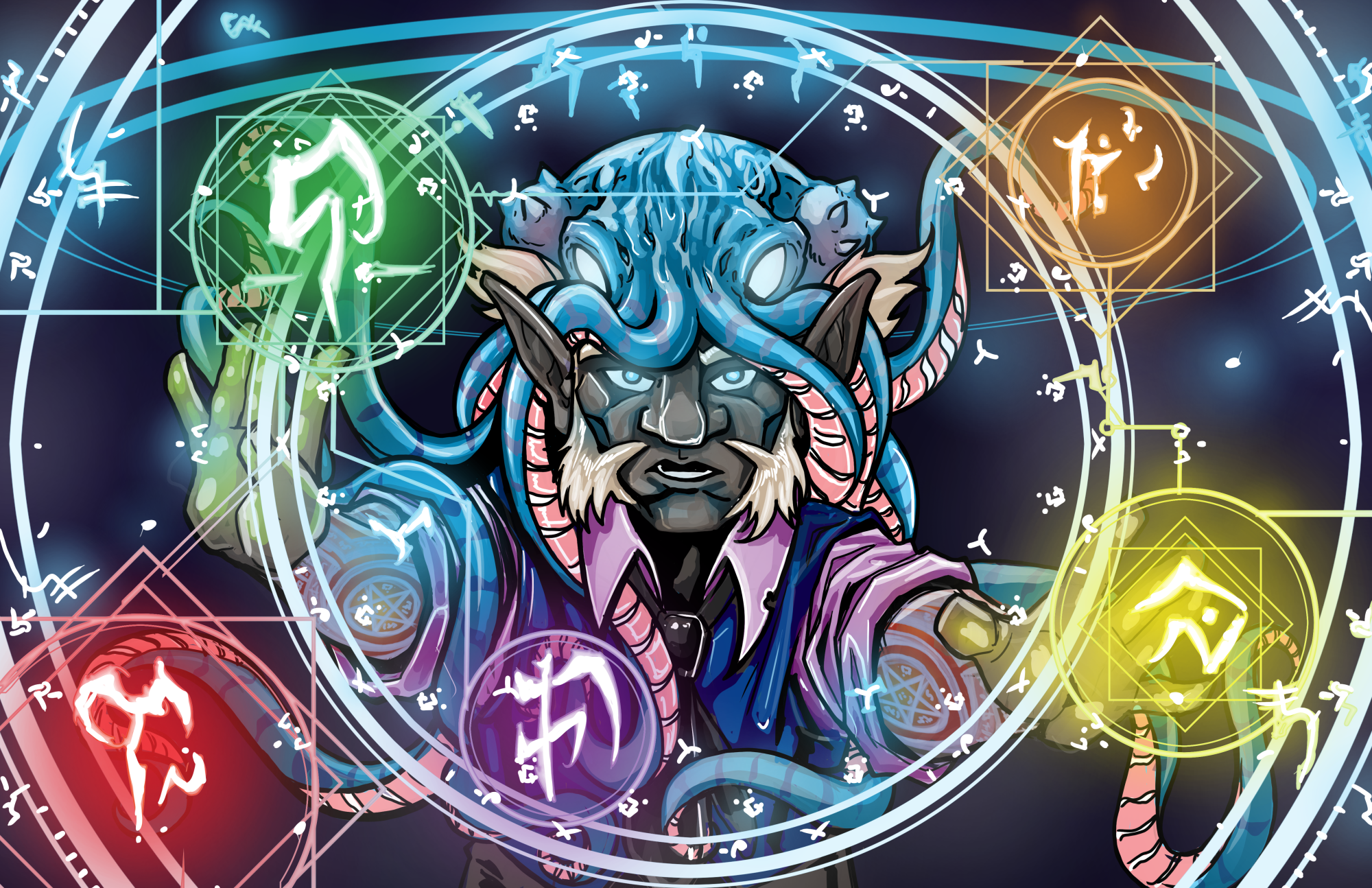Best Feats for Conjuration Wizard 5e
by Prince Phantom
Let’s just get this out of the way now, Minor Conjuration is an absolutely busted ability that anyone can take full advantage of if they just stop to think about it for more than 5 seconds, and it’s the reason that this is my favorite Wizard subclass. We can create anything so long as it’s not magical and of a certain size restriction, an unlimited number of times, with only one item created at a time. The moment you realize you can use this to create stuff like purple worm poison and tangler grenades, you’re off to the races.
Utility items are also on the table, like bullseye lanterns and portable rams. If you’re going to play this subclass, do yourself a favor and take a moment to research what you can do with this ability. Our other features are no slouch either, with a rechargeable 30ft teleport, concentration protection for our conjuration spells, and a big boost to the durability of our summons. There are a few interesting feat options for us, so let’s get into those now.
Best Feats for Conjuration Wizard 5e
Poisoner/Tavern Brawler (Lv 4): So these are not the feats you would expect from a Wizard, but hear me out. Tavern Brawler is specifically for those of you interested in a 3 level Thief Rogue dip, allowing us to throw acid vials created with our Minor Conjuration with our bonus action. Poisoner works with a straight Wizard build, allowing you to coat a weapon in purple worm poison and then attack with that weapon (probably a light crossbow) for the weapon’s damage plus an additional 12d6 on a failed DC 19 Constitution save, half on a success. Rogues are in shambles. Now you may actually not need Poisoner if you can predict combat well enough to coat your crossbow bolt in poison before the fight breaks out, but hopefully by level 4 you’ll have figured out if that is a problem in need of solving. I’d also note essence of ether as another great poison, this one causing unconsciousness on a failed DC 15 Constitution save, which will pretty much remove an enemy from the fight entirely. Also, yes these items can deal damage, they just disappear after dealing the damage. A dagger, for example, would deal its damage but then disappear if used to make an attack.
War Caster (Lv 4): If you’d just rather not do all that, then I suppose this is a fine choice to protect our concentration until level 10. We don’t really care about the other points, but your specific build might I suppose.
Telekinetic (Lv 8): If you’re using your bonus action to apply poisons frequently, you may not have room in your action economy for this, but I don’t think that will be a problem. Most of the time you will have a poison prepped, apply it on the first turn as a bonus action, then attack with our action. Now we don’t have any poison, so we’d have to use an action to create one, and we are better off just casting a spell, leaving our bonus action on turn 2 and onwards open. All that being said, the 5ft push synergizes great with a ton of wizard spells, the Mage Hand improvement is great, and we love to see an increase to our intelligence.
Shadow Touched (Lv 8): For those of you that really want to make the Rogue feel bad at their job (which they kinda are), starting every combat invisible so you get advantage on your big, poison-coated opening attack is pretty nice. I don’t think Fey Touched is as good here because our 6th level ability basically covers what we want Misty Step to be doing.
Alert (Lv 8): As we get into these higher levels, our focus will shift to concentrating on summon spells and other big control effects, and all of these spells work best when cast right at the start of combat so we get as much use out of them as possible. The other benefits are nice, but we’re here for the initiative bonus.
Resilient Constitution (Lv 12): Yes, I’m aware that our concentration is unbreakable by damage for all our conjuration spells, but not every spell we will want to cast is conjuration, and also Constitution saves are the most common to be forced on a player in general, even outside of concentration checks. No, we don’t need this as much as other Wizards, but I still think it warrants consideration.
Thank you for visiting!
If you’d like to support this ongoing project, you can do so by buying my books, getting some sweet C&C merch, or joining my Patreon.
The text on this page is Open Game Content, and is licensed for public use under the terms of the Open Game License v1.0a.
‘d20 System’ and the ‘d20 System’ logo are trademarks of Wizards of the Coast, Inc.
and are used according to the terms of the d20 System License version 6.0.
A copy of this License can be found at www.wizards.com/d20.



